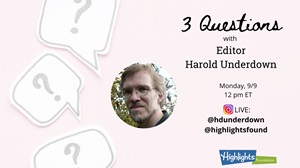Peter P. Jacobi, the late journalism professor, was faculty for our Summer Camp in Nonfiction every year. He offered some steps you should take when you have an interview to conduct:
1. Define the purpose of your interview.
Both participants in the conversation should know the purpose for better results and to keep the interview on track.
2. Engage in background research before the interview.
Lack of research, or skimpy research, will result in lack of information or skimpy information. You won’t know enough to ask the right questions and without those, you won’t get the right answers.
3. Plan. Prepare.
These give the interviewer a sense of security. Planning makes for flexibility, the pursuit of new paths opened by something the interviewee said: a new twist, a refreshing insight, an offbeat viewpoint.
4. Take time to familiarize yourself with your interviewee and for him/her to get familiar with you.
Break the ice. Get a feel for the other person’s personality. The rapport that results will lead to better flow and better answers.
5. Consider a beginning, a middle, and an ending.
Ask questions up front which are likely to prompt strong, attractive answers to heighten audience enthusiasm. Build your interview toward a couple of major points. Complete your interview leaving the audience with something to remember.
6. Think always in terms of audience interest.
Try to put yourself into the reader’s mind and heart. It’s not you who needs satisfaction. It’s your audience.






